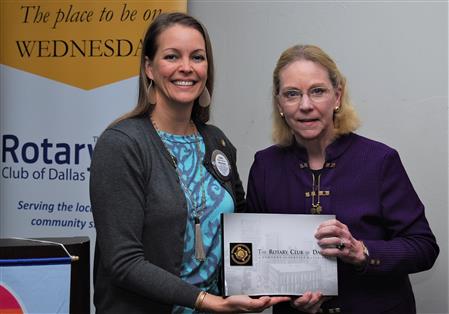
What we say to others is not always what they hear. Preparation and sensitivity were two key points in Merrie Spaeth's presentation at our meeting on May 8th. It is inevitable that crises will occur in both the private and public sectors.
What we say to others is not always what they hear. Preparation and sensitivity were two key points in Merrie Spaeth's presentation at our meeting on May 8th. It is inevitable that crises will occur in both the private and public sectors. Ms. Spaeth identified President Ronald Reagan as a master of crisis management based on his training and constant rehearsal. How does a response look and sound when confronting a crisis? She showed us concrete examples of "do's and don'ts" in the form of video clips of individuals being interviewed in the face of crisis. The reality of these circumstances was poignant and the interviews emphasized several of the rules addressed in her remarks.
Statistics and data don't cut it; empathy and anecdotal stories are much more powerful. Look beyond the camera to the folks who will see the interview when responding.Use affirming, "good words" in your answers. " I am not a crook" proved to be quite unhelpful to Richard Nixon. While she counseled against having the CEO of a company as a "first responder," Ms. Spaeth encouraged using employees at every level to spread good works of a company rather than always relying on its PR department to speak.